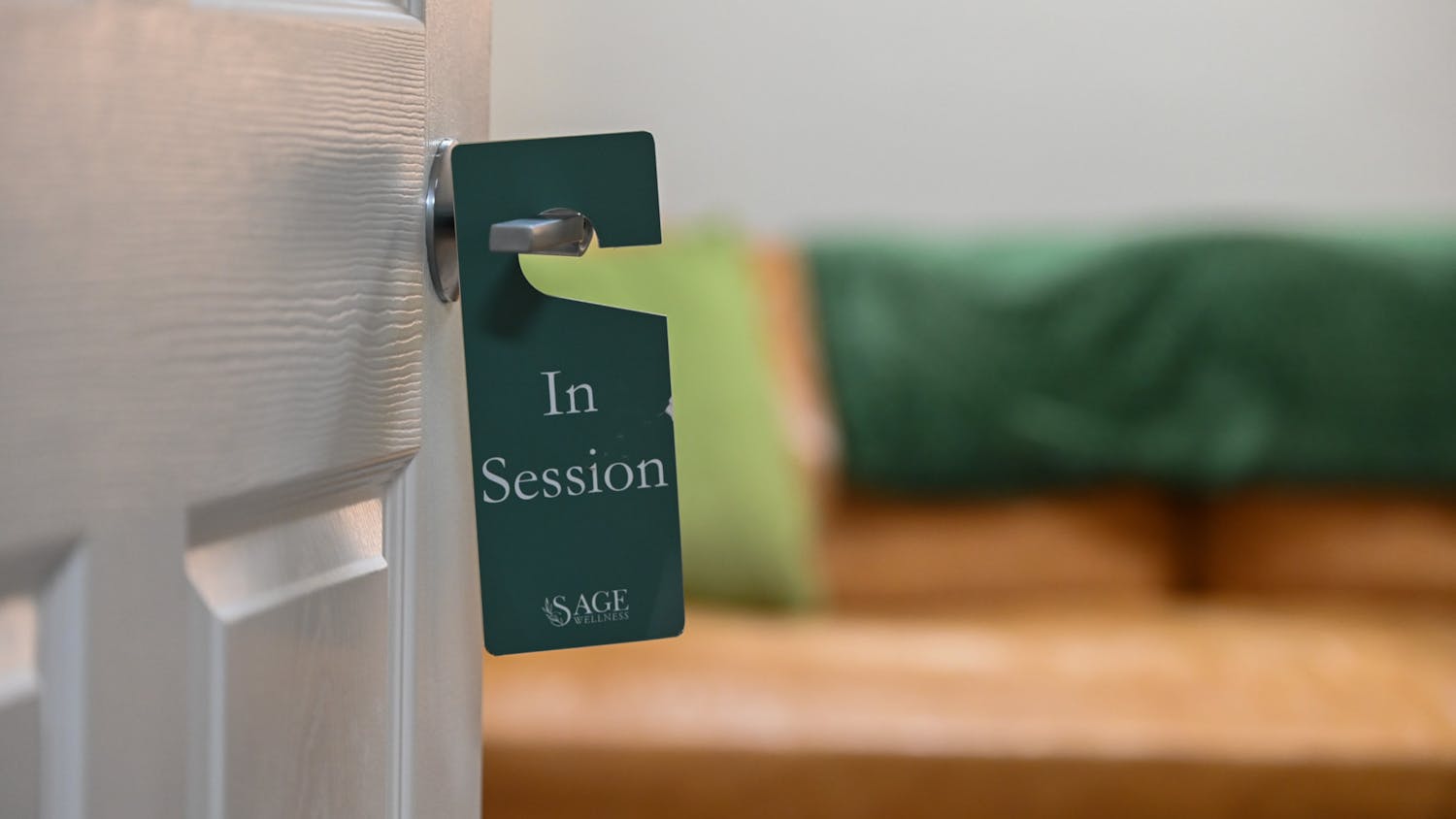Editor’s note: This article contains mentions of sensitive mental health topics including suicide.
In early spring of my freshman year, my younger sister made an attempt to take her life. Just over 300 miles away from me, she was battling depression and suicidal thoughts.
Ironically, a mental health magazine launch that I helped organize would take place the next week at the Reitz Ballroom. The week after that, I was in Fort Lauderdale visiting her. Just a few days later, I was in Marston studying for my Arabic final exam.
With a heavy heart and a numb mind, I kept going. My role as a student collided with my role as a sister. It was one of the most difficult times of my life, and it wasn’t even about me. I couldn’t share, I couldn’t process, I just had to keep going.
Starting Sept. 11 through 14 is National Suicide Prevention Week. At the same time, Hallmark starts to introduce its spooky season, and new Starbucks drinks make my daily coffee commute longer.
These distractions sweep over the seven days the government meaningfully reflects on suicide prevention.
The UF Counseling and Wellness Center offered a “Build Your Gator Wellness Toolkit” week of events. Despite the new Wall Street Journal “#1 public university” flags unveiled this week, there are no blue and orange banners that say “Suicide Prevention Week” on campus.
The Student Health Psychiatry has moved from the Counseling and Wellness Center to the new Student Health Care Center. Placing mental health resources and physical health resources in the same building seems to be a silent win. It wasn’t front-page news, but to me, it was huge. However, while UF has made great strides in the accessibility of mental health resources, there is still progress to be made.
Last year my best friend from high school said she wouldn’t mind not waking up the next day. Practically rotting away in her Infinity Hall dorm room, she felt no value in her life. Following a walk to the Hub, a bus ride to the CWC and an awkward silence in the waiting room, I was the one who filled out her sign-in extensive questionnaire. Almost every alarming sign of depression was checked off on that guide. Two weeks and a 15-minute zoom call later, she remained unmatched with a therapist.
There is something even more excruciating about mental health problems than any physical injury. You can’t see them. We can sympathize with physical pain because it is universal. Just the sight of someone’s injury can initiate a wince at the idea of your body undergoing physical trauma. But sitting on the bus to class with a crowd of students won’t give any insight to what’s going on in their heads.
Not only do I struggle with anxiety, but I have a family history of mental health. While the person sitting next to you on the bus may not have a diagnosed mental disorder, perhaps their mother does, or their sibling or their grandparent. About a quarter of Americans aged 18 or older struggle with a diagnosable mental disorder every year. That means any of those four people in that aforementioned scenario are at odds to suffer with a mental disorder. It’s not taboo, and it’s not unseen or unspeakable; it’s everywhere and real. It’s crucial to recognize that mental health is equally as vital as physical health — both can be a threat to your life.
The Center for Disease Control and Prevention states that, “Between 3 and 11% of the U.S. population gets infected and develops flu symptoms each year.” The CDC’s data also shows that Florida’s suicide death rate was 14% in 2021.
I mention this comparison because as I received emails from the Student Health Care Center encouraging me to get my free flu shot, I never got a follow up email offering a free therapist. Granted, those comparisons are a stretch, but on a personal level, both are just as important.
It’s not to say this campus isn’t full of wonderful professors who openly speak about the importance and understanding of mental health. As I enter my sophomore year, I have yet to encounter a professor who hasn’t been understanding of my complicated family life and how it affects me. But that’s because I sought out help. Every individual’s struggles are different, and not everyone is willing to get help.
When a student has a cast on their leg, it’s not uncommon for their professor to ask what happened. In the same way, emotional concerns and signs of distress should be checked as well — offering mental health resources is not enough. Advocating for and spreading awareness of what the school can do for the students it houses and educates is. It’s important to keep the university accountable for vouching for its students.
I emphasize that my experience is one of 60,000. I’m lucky enough to come into school with a therapist, but not everyone has one. Every student who needs to be seen for a physical exam is assigned a primary care provider, but not immediately assigned a therapist.
Everyone needs a therapist, just like everyone needs a doctor. The more casual and normalized we speak of therapy, the more awareness is spread on the prevalence of mental health. The more collective that effort is, the less alone students will feel in a common struggle.
Noor Sukar is a UF journalism sophomore.
Noor Sukkar is a third-year journalism major with a minor in Arabic. She is the Avenue's Fall 2024 General Assignment reporter. When she's not writing, she's most likely talking to her cat or overwatering her plants.






